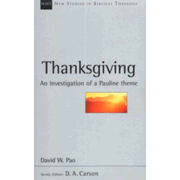
Thanksgiving isn’t just a holiday marked by food and family; it’s a way of life.
In the West, Thanksgiving often means gathering around a table filled with turkey, mashed potatoes, and pumpkin pie, taking turns sharing what everyone is thankful for before enjoying the meal. Those moments are meaningful and heartfelt.
Here in the Philippines, though, our idea of Thanksgiving looks a little different.
When a Filipino family says they’re “having a Thanksgiving,” it’s not tied to a specific date on the calendar. It’s a personal celebration of gratitude to God; often for a new home, a promotion, a successful harvest, or any blessing that feels worth pausing to honor.
We set the date ourselves, prepare a feast according to our means, and invite everyone: family, relatives, neighbors, church members, and sometimes even local officials. It’s our way of sharing God’s blessings with others and publicly acknowledging His faithfulness.
But whether it’s a homegrown Filipino celebration or a Western holiday tradition, the heart of Thanksgiving is the same: gratitude to God. From a biblical perspective, thanksgiving is not just a moment or a meal; it’s a lifestyle, a daily posture of the heart that recognizes God’s goodness, even in ordinary moments and difficult seasons.
Thanksgiving as Worship
In Scripture, thanksgiving isn’t about polite manners or fleeting positivity; it’s worship. The Hebrew word todah and the Greek eucharistia both describe acts of praise, confession, and offering. Thanksgiving is an ongoing acknowledgment of God’s sovereignty and grace, a rhythm of worship woven through every part of life.
Paul reminds us in 1 Thessalonians 5:18, “Give thanks in all circumstances; for this is God’s will for you in Christ Jesus.” That command doesn’t mean pretending everything is fine. It’s about choosing to see life through the lens of faith, trusting that even when life feels uncertain, God’s love and providence remain unshakable.
When gratitude becomes part of who we are, not just something we practice once a year, it transforms us. It shifts our focus from what’s lacking to the abundance already present. And in that shift, we find peace, perspective, and a renewed awareness of God’s presence in our everyday lives.
Rooted Faith: The Biblical Mandate for Gratitude

Gratitude is deeply rooted in Scripture. It’s not optional; it’s a vital part of worship and a natural response to knowing God.
Psalm 100 tells us to “Enter His gates with thanksgiving and His courts with praise.” Gratitude is how we draw near to Him. When we thank God, we’re not just appreciating blessings; we’re declaring His goodness, acknowledging His rule, and expressing trust in His care.
The Hebrew word todah also carries the meaning of confession, an acknowledgment of our dependence on God. True gratitude admits, “I need You, Lord.” It’s an act of humility that recognizes everything we have comes from His hand.
James 1:17 reminds us, “Every good and perfect gift is from above.” Even in hardship, gratitude reminds us that our Father is faithful. Habakkuk 3:17–18 captures this beautifully: even when crops fail and fields are barren, the prophet still rejoices in the Lord.
Jesus modeled this same heart. He gave thanks before feeding thousands and before breaking bread at the Last Supper; moments filled with both provision and coming sacrifice. His gratitude wasn’t based on what He received but on His surrender to the Father’s will.
When we live with this kind of thankfulness, it shapes how we act, serve, and relate to others. Gratitude becomes obedience in action. It’s how we mirror the heart of Christ, through service, worship, and quiet faithfulness that honors God in both the mountain and the valley.
Gratitude in Every Season

Every season of life offers its own reasons for gratitude. Some days, it flows easily. On others, it feels like a struggle. But gratitude isn’t about denying hardship; it’s about seeing God’s hand in the middle of it.
The Psalms often weave lament and thanksgiving together. In Psalm 13, David cries out in despair but ends with praise, saying, “I will sing to the Lord, for He has been good to me.” Gratitude and grief can coexist. In fact, thanksgiving in suffering often becomes our deepest form of worship.
Paul echoed this truth in Romans 5:3–5, teaching that suffering produces perseverance, character, and hope. Gratitude allows us to see trials as places where God’s grace grows stronger within us. It lifts our eyes from what’s temporary to what’s eternal.
Practicing thankfulness also renews the mind. Romans 12:2 calls us to be transformed by renewing our thinking, and gratitude is one of the most powerful ways to do that. It helps us see blessings we might otherwise overlook and keeps our hearts anchored in hope.
Even in dark seasons, stories of faith remind us that gratitude brings light. Paul and Silas sang hymns in prison. Job blessed the Lord in loss. Their thanksgiving wasn’t born out of comfort but conviction; that God is still worthy of praise, no matter what comes.
Demonstrating Thankfulness Daily
Living a thankful life doesn’t require grand gestures. It grows through small, intentional choices each day.
1️⃣ Meditate on Scripture.
Start by reflecting on verses that highlight gratitude, such as Psalms 100 and 136. Reading and meditating on these passages strengthens your heart and keeps your focus on God’s steadfast love.
2️⃣ Keep a gratitude journal.
Writing down blessings, even small ones, helps you see God’s hand in daily life: a warm sunrise, a child’s laughter, or a quiet moment of peace. Over time, this habit reshapes your outlook and fills your heart with joy.
4️⃣ Pray with thanksgiving.
Before asking God for anything, take time to thank Him. Recall His past faithfulness; it builds confidence for the future. Philippians 4:6 encourages us to present our requests “with thanksgiving,” knowing peace follows.
5️⃣ Speak gratitude aloud.
Tell people you appreciate them. Share testimonies of how God is working in your life. Expressing gratitude blesses others and strengthens your own spirit.
6️⃣ Act on gratitude.
True thanksgiving inspires generosity. As Paul wrote in 2 Corinthians 9:11–12, when we give and serve out of gratitude, others give thanks to God, too. Our generosity becomes worship in action.
Finally, let gratitude be a shared experience. When we gather in church, small groups, or family settings to share what God has done, we’re reminded that we’re part of something bigger than ourselves. Thanksgiving unites hearts around a faithful God who continues to provide.
Overcoming Obstacles to Gratitude
Of course, gratitude doesn’t always come easily. There are seasons when pain or disappointment makes it hard to be thankful. But it’s often in those moments that gratitude becomes most powerful.
Being thankful during hardship doesn’t mean ignoring your feelings. It means trusting that God is still good and still near. 1 Peter 1:6–7 reminds us that trials refine our faith like gold. Gratitude anchors us when life feels uncertain; it points us back to the One who never changes.
When your heart feels heavy, remember that gratitude doesn’t have to sound polished or perfect. Psalm 42:5 captures this tension: “Why, my soul, are you downcast?… Put your hope in God, for I will yet praise Him.” Even a whispered “thank You” in the middle of tears is precious to God.
Hebrews 13:15 calls our thanksgiving a “sacrifice of praise.” Sometimes it really does feel like a sacrifice, but God receives it with joy. Our imperfect gratitude becomes an act of faith that honors Him more deeply than words of ease ever could.
Choosing gratitude in hard times strengthens spiritual endurance. It reminds us that even when we don’t see the full picture, God’s plan is still unfolding. Gratitude lifts our eyes from pain to promise, and in that upward gaze, faith grows stronger.
Conclusion

Thanksgiving isn’t meant to be an event we celebrate once a year; it’s a way we live every day. It’s waking up and saying, “Lord, I see Your hand in this moment.” It’s choosing gratitude in the quiet, unseen places of life where faith is tested and refined.
When we cultivate a thankful heart, we don’t just bless God; we experience His peace, purpose, and presence in deeper ways. So this Thanksgiving season, let’s go beyond the table prayer. Let’s make gratitude the rhythm of our days.
Take time to pause, reflect, and thank God not only for what He’s given, but for who He is. His goodness never runs out, and His faithfulness endures forever.
Key Takeaway
Thanksgiving isn’t about having perfect circumstances; it’s about having a heart that recognizes God’s goodness in every one of them. True gratitude flows from faith, not feelings, and transforms ordinary days into moments of worship.
This post contains affiliate links, which means I may earn a commission at no extra cost to you if you make a purchase through one of these links. I only recommend products or services I trust and personally use. Thank you for supporting Biblical Christianity!
Recommended Resource
If you want to understand Thanksgiving from a deeper, biblical perspective, this book is a wonderful resource. In Thanksgiving: A Biblical-Theological Investigation of a Pauline Theme, David W. Pao helps readers see that gratitude isn’t just a feeling; it’s a way of worshiping God and living under Christ’s lordship. It’s a beautiful reminder that a thankful heart is at the very center of our walk with Him.

|
Thanksgiving: A Biblical-Theological Investigation of a Pauline Theme (New Studies in Biblical Theology)
By David W. Pao If you want to understand thanksgiving from a deeper, biblical perspective, this is a wonderful resource. David Pao shows that gratitude in Paul is more than feeling—it’s worship, obedience, and a life lived under Christ’s lordship. A timely read for anyone wanting a richer, gospel-shaped practice of thanksgiving. |

Yes, I am thankful to you, sister, for writing this message on gratitude as part of worship.
I am thankful to Almighty God for everything He has given to me and my family. God bless you, sister.
And once again, thank you for this message.
Hello Kishore,
Thank you for taking the time to read this article and for leaving a comment. I feel blessed to know that you find this valuable.
May the good Lord continually bless you and your family.
Shalom!